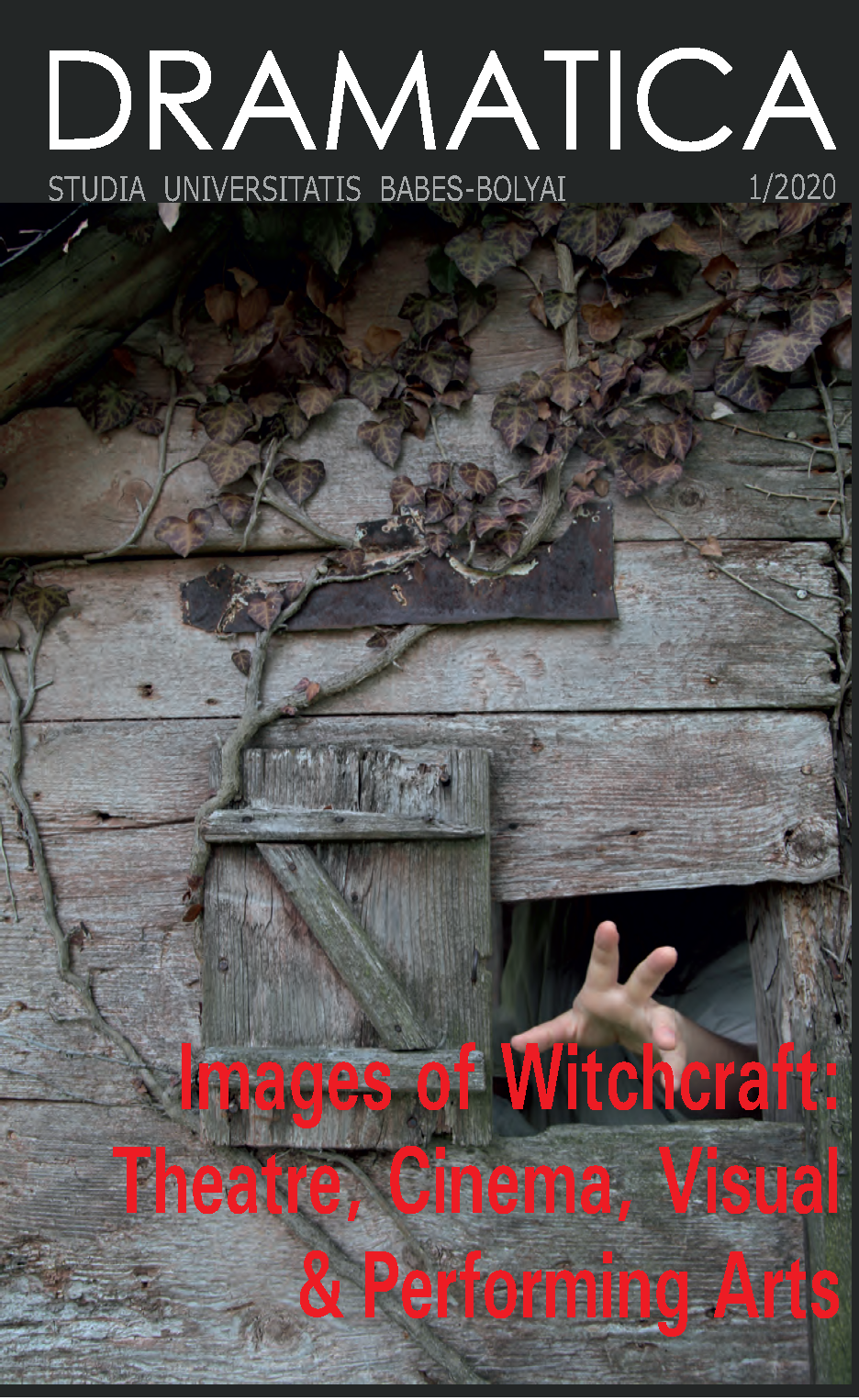« Glissements progressifs du plaisir » : érotisme, kitsch et sorcellerie chez Alain Robbe-Grillet
DOI:
https://doi.org/10.24193/subbdrama.2020.1.13Keywords:
Fetishism, commodity fetishism, cinema, witchcraft, kitsch, eroticism, pornography, sterility, anti-nature.Abstract
“Successive Slidings of Pleasure”: Eroticism, Kitsch and Witchcraft in Alain Robbe-Grillet’s Work. According to Alain Robbe-Grillet, his movie Successive Slidings of Pleasure (1974) has been directly influenced by the essay Satanism and Witchcraft (French original: 1862) of the romantic historian Jules Michelet and also by the reading of this book by Roland Barthes in the sense of a new criticism. In the same sense, we propose here a comparative study of our corpus, based on the idea of a particular archaic universe of magical practice, shamanism and witchcraft as it is described by Hans Peter Duerr : “The ‘dream place’ is everywhere and nowhere, just like the ‘dreamtime’ is always and never. You might say that the term ‘dream place’ does not refer to any particular place and the way to get to it is to get nowhere.” (Dreamtime, 1987; German original: 1978). Despite its rationality, modern civilization is mainly based on an irrational principle: the commodity fetishism (Marx). Thus in modern societies you can find a sliding eroticism of fetishism, now in the Freudian sense of the term (cf. Jean Baudrillard), that may transform every object into an object of desire, with the consequence that even the human body enters as a “fetish” into sexual relationship. In his works, Robbe-Grillet reproduces this universe by restituting to this fetishism its magic appearance throughout kitsch (representing anti-nature) and pornography in the “dream place” called cinema. The “generator” in Successive Slidings of Pleasure is the perfect female beauty of the seventies, associated to that of a witch. A similar effect produced by the woman’s body can be found, according to the “new critic” Roland Barthes and the “new novelist” Robbe-Grillet, in the work of Jules Michelet.
References
Barthes, Roland. « La Sorcière [Préface au livre éponyme de Michelet, 1959]. » In Œuvres complètes I. 1942-1965, éd. Éric Marty, 1250-1259. Paris, Éditions du Seuil, 1993.
Barthes, Roland. Michelet. In Œuvres complètes I. 1942-1965, éd. Éric Marty, 244-571. Paris, Éditions du Seuil, 1993.
Baudrillard, Jean. Le Système des objets. Paris, Gallimard, collection « Tel », 1978 [1968].
Baudrillard, Jean. Pour une Critique politique du signe. Paris, Gallimard, collection « Tel », 1986 [1972].
Benjamin, Walter. « Zentralpark. » In Abhandlungen (= Gesammelte Schriften I.2), éd. Rolf Tiedemann & Hermann Schweppenhäuser, 655-690. Franfurt a. M., Suhrkamp, collection « Suhrkamp Wissenschaft », 1991.
Broch, Hermann. « Einige Bemerkungen zum Problem des Kitsches. » In Schriften zur Literatur 2. (= Kommentierte Werkausgabe IX.2), éd. P.M. Lützeler, 158-173. Frankfurt a. M., Suhrkamp, 1975.
Château, Dominique et Jost, François. Nouveau Cinéma, nouvelle sémiologie. Essai d’analyse des films d’Alain Robbe-Grillet. Paris, 10/18, 1979.
Deleuze, Gilles. Cinéma 2. L’Image-temps. Paris, Editions de Minuit, 1985.
Duerr, Hans Peter. Traumzeit. Über die Grenze zwischen Wildnis und Zivilisation. Frankfurt a. M.: Suhrkamp, « collection edition NF », 1985.
Faure, Élie. « Charlot. » In De la cinéplastique à son destin social (1921-1937), 47-59. Paris, Éditions d’Histoire et d’Art, Librairie Plon, 1953.
Kafka, Franz. « Le cinéma prête aux objets qu’il montre l’inquiétude de son mouvement… (1911) », in Daniel Banda et José Moure (éd.). Le Cinéma : naissance d’un art. 1895-1920, Paris, Flammarion, collection « Champs arts », 2008, 285-287.
Kuhnle, Till R. « D’une épave de moissonneuse à l’épiphanie : La Bataille de Pharsale de Claude Simon. » In De l’Écriture et des fragments. Fragmentation et sciences humaines, Peter Schnyder et Frédérique Toudoire-Surlapierre éd., 410-421. Paris : Garnier, collection « Classiques », 2016.
Metz, Christian. Essais sur la signification du cinéma. Paris, Klincksieck, 2003.
Michelet, Jules. La Sorcière. Paris, Collection Hetzel, 1862.
Robbe-Grillet, Alain. L’Année dernière à Marienbad. Paris, Les Éditions de Minuit, 1962.
Robbe-Grillet, Alain. Pour un nouveau roman. Paris, Les Éditions de Minuit, 1963.
Robbe-Grillet, Alain. Glissements progressifs du plaisir. Ciné-roman. Paris, Les Éditions de Minuit, 1974.
Robbe-Grillet, Alain. Angélique ou l’enchantement. Paris, Les Éditions de Minuit, 1987.
Robbe-Grillet, Alain, Fragola, Anthony N. et Smith, Roch C. The Erotic Dream Machine: Interviews with Alain Robbe-Grillet on His Films. Carbondale et al.: Southern Illinois Univ. Press, 1992.
Downloads
Published
How to Cite
Issue
Section
License
Copyright (c) 2020 Studia Universitatis Babeș-Bolyai Dramatica

This work is licensed under a Creative Commons Attribution-NonCommercial-NoDerivatives 4.0 International License.


